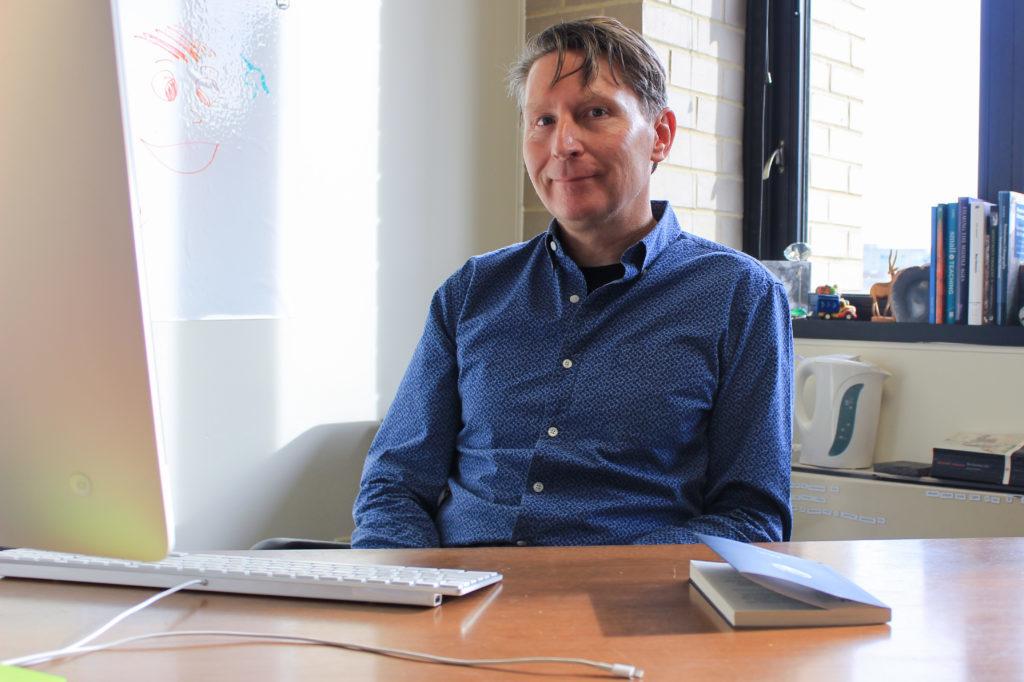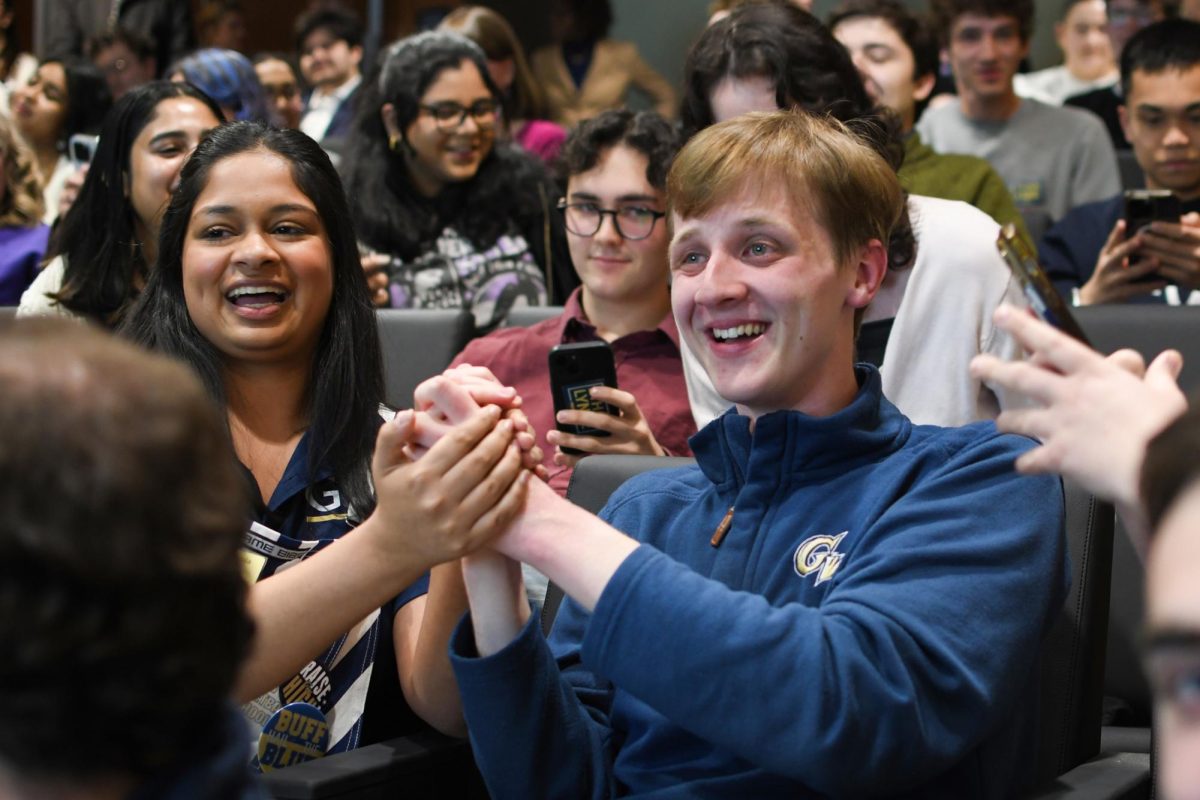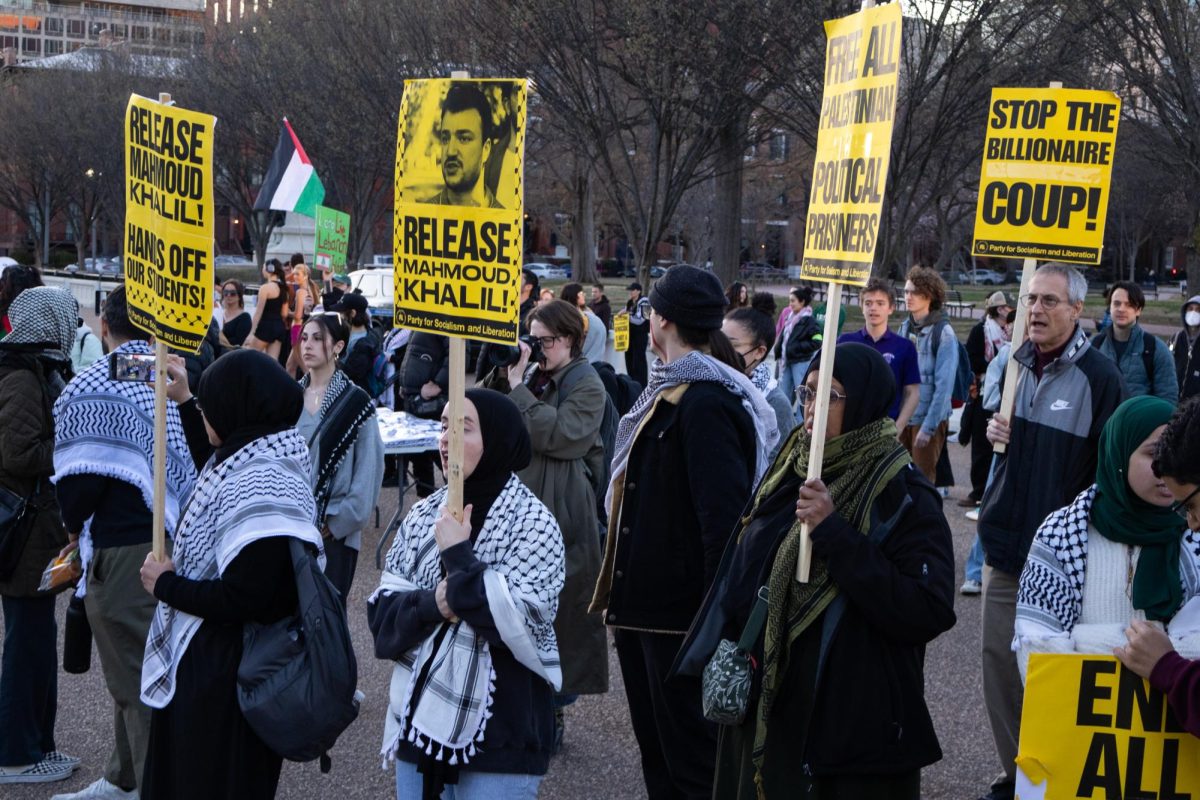Sophomores will get to work on their own research projects with top-ranked faculty in the Columbian College of Arts and Sciences in four seminar-style courses this fall.
The four courses cover a range of topics from the nature of children, to the relationship between literature and the environment, to photography and the life of Abraham Lincoln. Faculty said the smaller classes will give second-year students more face time with professors and will help them build research and public speaking skills in an intimate setting.
Elizabeth Chacko, the associate dean for undergraduate studies in CCAS, said in an email that the courses will challenge students through intensive scholarship and research on specific topics from climate to photography.
The courses will also fulfill an oral communication G-PAC requirement and students in them will have to participate in an independent research project, Chacko said.
“Students will be presenting throughout the semester on their independent research projects, we thought it would be important to train students in presentation techniques and also to give them GPAC credit for oral communication,” she said.
CCAS established the Dean’s Research Chair Award in 2014, a program that provides three years of research funding and a decreased course load to 10 faculty members while they complete research projects. During the three-year cycle, or the academic year following their term, the faculty who receive the award teach a seminar class for sophomores.
Dean Kessmann, an associate professor of photography, will teach “Photography: From Photogram to Scanogram,” about the development of photo technology next fall. Kessmann said the small class sizes will give students one-on-one interactions with professors, similar to the structure of a dean’s seminars offered to freshmen.
He said the research component of the courses will give faculty and students a chance to work closely together on a project for a hands-on learning experience.
“The sophomore colloquia will allow students to work with professors on a subject that is directly related to their own research, which will hopefully be exciting for the students and faculty members alike,” Kessmann said in an email.
Jeffrey Cohen, a professor of English who will teach one of the seminars on “Literature and the Environment,” said the course will be the first at GW to focus on the topic.
Students in the class will study the history of literature’s relationship with the environment and human ecology, he said. Cohen said the oral communication requirement will ensure that students in the course are prepared to speak effectively on environmental issues, an element that is often missing from other English courses.
“Being an articulate public intellectual when talking about the environment, it’s a core part of the course,” Cohen said. “There is definitely a point where they are part of a public discourse that other English department courses do not have, and they will learn about the history and do outreach.”
Tyler Anbinder, a professor of history who is teaching a seminar on the life of Abraham Lincoln next fall, said the course will allow sophomore students to build personal relationships with professors while they are still underclassmen.
“My understanding is the goal is to give underclassmen more chances to get into small classes with full-time faculty,” Anbinder said. “The dean thought only juniors and seniors today get into small classes now and that CCAS students ought to get into such classes with close interaction with faculty earlier in their GW careers.”





